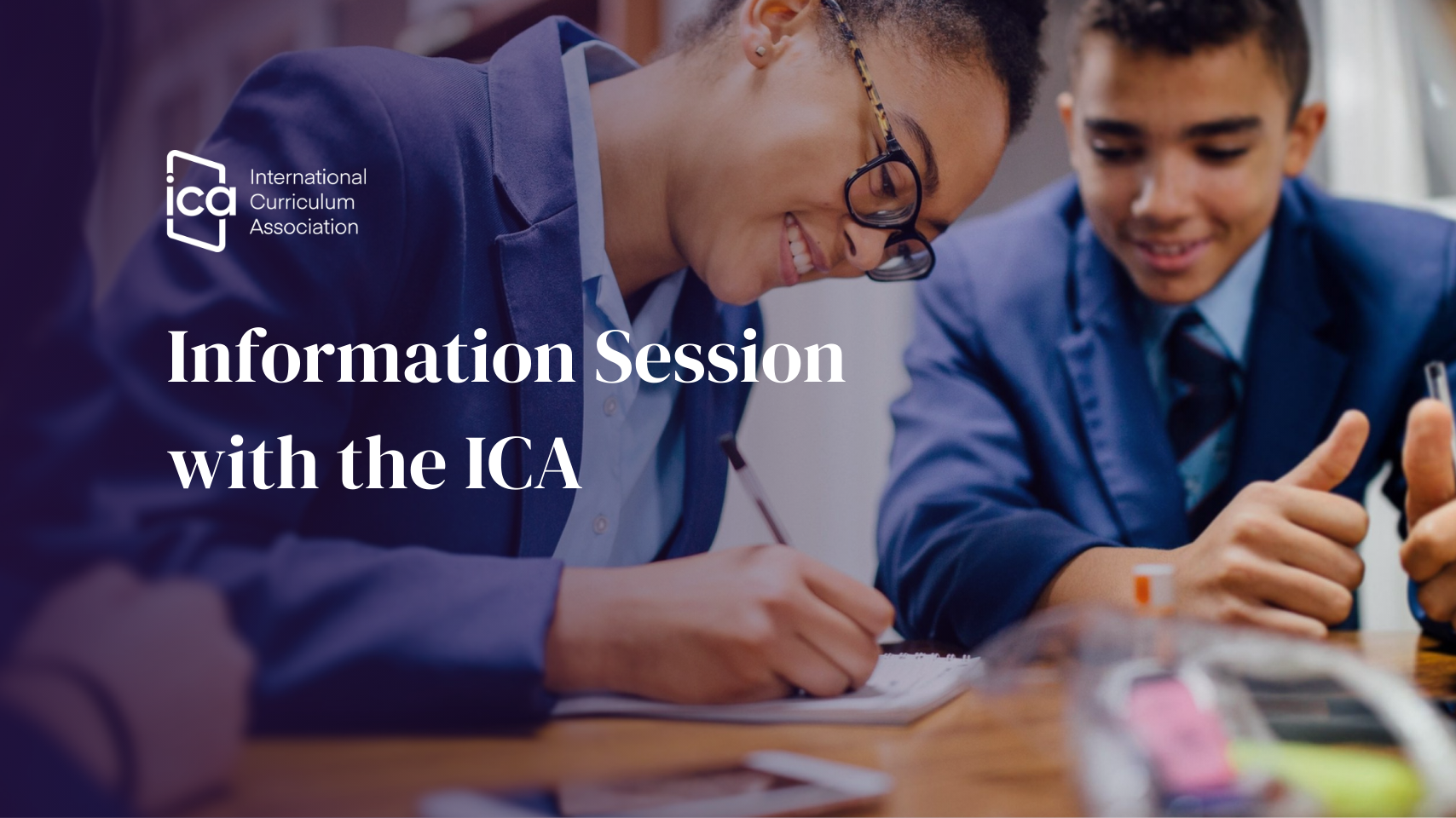The International IEYC, IPC and IMYC Programmes are supported by research from around the globe. This provides us with direction for our 7 foundations for the International Curriculum. Beyond age and international education, we cannot address all the challenges to improving learning in the varied contexts in which our member schools operate. What makes the implementation of the International Curriculum successful and learning effective differs by context and by individual learner. There is an abundance of research that could inform school decision making, but there are also opportunities for research into what is successful and what we could do better in our own schools.
To bring the International Curriculum and the school together to improve learning the International Curriculum Association expects that:
“Leaders develop the capacity of teachers to engage with action research connected to improving learning and teaching. They support teachers to share and implement these new insights with learners and colleagues.”
What does this really mean? What could it mean?
I have identified two distinct paths to promoting action research, I call these the ‘Do-Think-Do’ or the ‘Think-do-Think’ approaches, in brief:
You have success, you think about what happened and reflect on why it worked. Would it work anywhere else? Other subjects? Other age groups? Other learning challenges? Try it elsewhere, feed forward the strategy for others to try.
You identify a problem or learning challenge, you read the research and reflect, then try new strategies adapted for your situation. You collect evidence of learning and reflect again, was the outcome what you hoped?
Do think do
Stage 1 - Do
This approach starts from a positive classroom experience, success and possibly surprise! You and the learners did something, and learning happened, the outcome was better than expected.
Stage 2 - Think
Questions are the easiest way to show how the thinking process might go. To begin try to establish whether what happened was learner initiated or teacher led.
What is it you did that you think positively impacted learning? OR What is it that learners did?
The following are sample questions to reflect on the classroom experience, considering teaching and learning:
Did you specifically plan for what happened?
Did you encourage what the learners did or did the children initiate it?
Did everyone do it?
Did everyone benefit? Were the learning benefits the same for everyone?
Did it take any investment? (Cost, prep, time & attention in class.) Does the benefit outweigh the investment?
The next step is to create a testable learning theory to drive your action research.
I think ________made learning more effective. The evidence I have is____________.
The next step is to find any research to support what you think. This could be teacher blogs about experiences that explore similar strategies to you or peer reviewed academic papers. What can you learn from the research? Do you think this strategy would have a similar impact in other contexts? Age, subject, ability, learning temperament etc.
Context is important so the final part of the think stage is to consider the school. Questions to ask include: Does the learning strategy align with school policies? If not, why not and what can you do? Is it a new classroom approach to add to the school’s teaching and learning policy? How does the policy get reviewed and changed? Who needs to know about your learning theory before you put your research into action?
Stage 3 Do
This requires taking your thinking back into the classroom and developing your practice. It is essential to collect evidence of the learning that you think was a result of with the approach you implemented. You need to engage in critical self-reflection and evaluate the impact of the strategy to decide if you can confirm your learning theory. If you can, then there is more to do such as feeding forward for others to try or suggesting amendments to any connected policies.
Think do think
Stage 1 - Think
This process begins with reading, hearing about or observing what someone else did and wondering if it would work for you. Peer reviewed research and teachers sharing their experiences in more informal ways could be the inspiration. The thinking should focus on your own teaching context and includes considering: Why do you think the idea will work? Does it need adapting? Does it align with school policy? Is it feasible in your teaching and learning space with current resources?
Stage 2 - Do
Identify a practise to test and make a plan.
What will you do and why? How long? How often? With who?
How will you know if what you did was successful? What evidence of learning will you look for?
Talk to colleagues about the research and your plan. Encourage them to pose questions - this is not the time to defend, but a time to discuss and to be realistic and reflective! Share you plan with school leaders or line managers before implementing.
Stage 3 Think
The final thinking stage requires critical and honest reflection, focused on the evidence of learning you collected.
Did everyone benefit? Were the learning benefits the same for everyone?
Were there any unexpected results/consequences?
Did it take any investment? (Cost, prep, time & attention in class.) Does the benefit outweigh the investment? The aim is to be able to make an informed decision on whether this new practise should become part of your established repertoire.
Leaders - How could you initiate action research in your school?
Promoting engagement with research as a valid professional activity through dedicated staff meetings may provide inspiration for school-based research. You also need to develop a culture of reflecting on classroom practice, identifying evidence of learning and asking why. You need to support trying new ways of doing things and promoting professional, reflective dialogue between colleagues as well as empowering them to drive policy change.
To further legitimise action research, model it. Let staff see you engaged with the process, let them hear you reflecting and questioning your own practise.
You could take a more formal approach by inviting individual or group projects to address areas of need on the school improvement plan or you could assign a performance management objective requires staff to undertake action research.
There are many models for action research, irrespective of approach the goal remains the same professional growth for staff and improving learning for children.
Read more on action research here.

.png)
